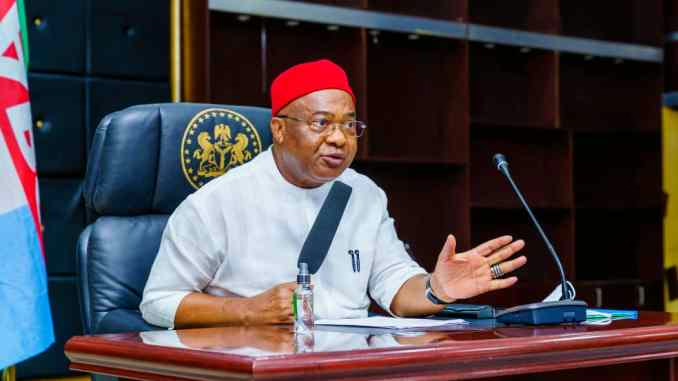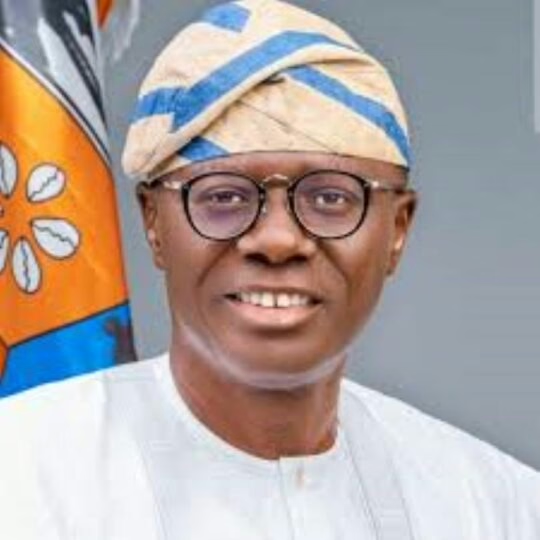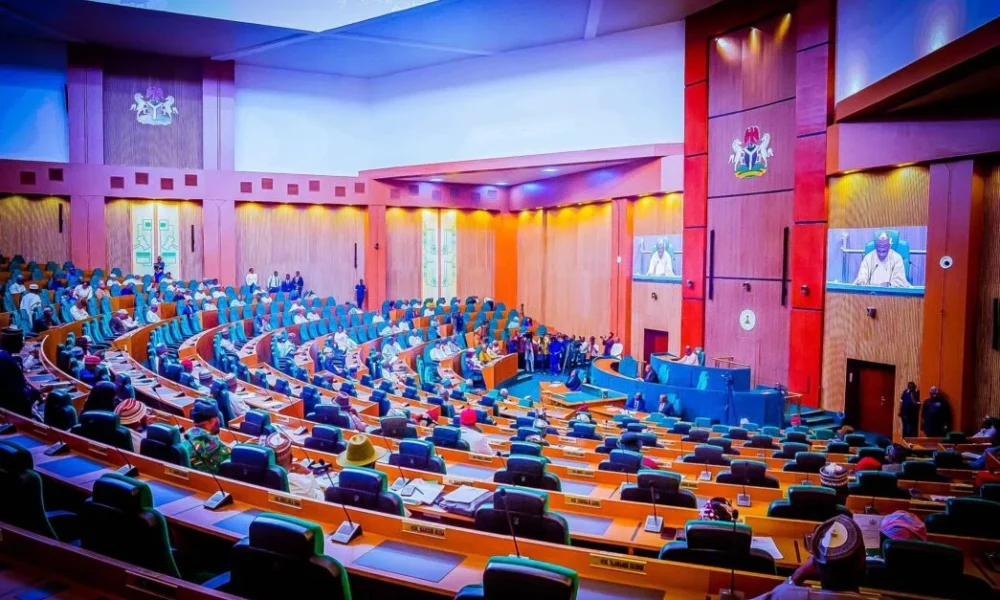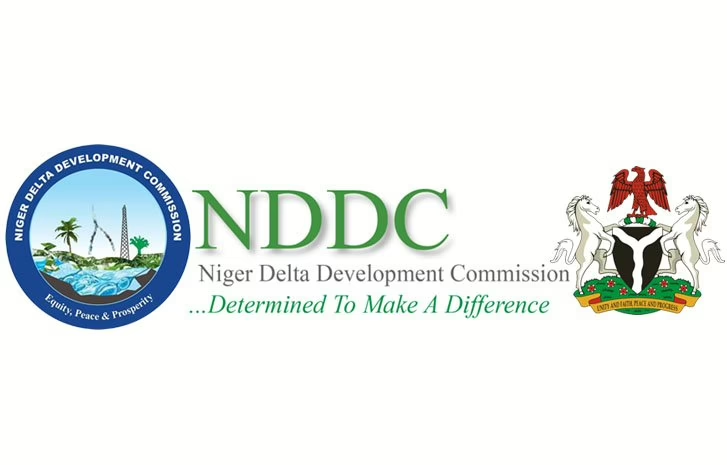Considering the actual and perceived shortcomings of the Buhari-led All Progressives Congress (APC) administration in many critical areas of public governance, a lot of Nigerians did not expect that there was still a viable electoral pathway for any presidential aspirant from that party’s stable so soon after Buhari’s uneventful performances.
It was within that vortex of negative perception that Asiwaju Bola Ahmed Tinubu, the Jagaban Borgu, emerged as the flagbearer of the APC and in spite of his enormous unassailable pedigree as a man of great leadership vision and unmatchable political sagacity, judging by his leadership exploits in Lagos State as Governor, he was still not given much of a chance because Buhari’s eight burdensome years in office were akin to those biblical years that the locust destroyed; that woeful testimonial automatically gave presidential candidates bearing APC’s flag a very tall climb.
Tinubu and Late Roosevelt Salaries and compensation for Nigerian workers can now be paid in US Dollars, you acquire premium domains for as low as $1500 and PROFIT $22,000 ( ₦34 million) Click here.
It was that unsavory perception of the ruling APC that gave PDP, the main opposition party, such an untamed hope of an imminent electoral resurgence despite its own debilitative political debacle, a loathsome toga which it earned after a largely wasteful sixteen years in power. That fledgling hope soon evaporated the moment it recklessly abandoned, midstream, the common political wisdom of Nigeria’s federated politics which is established on the uninterrupted oscillation of power between North and South of the country. Indeed, the political compass of the PDP initially pointed towards the Southeast until Abubakar Atiku, another northerner after Buhari, came in with his enormous financial muscles and promptly disrupted PDP’s rotational calculus.
Atiku thus violated the unwritten “Golden Rule” of national cake-eating rotation and that act made an already tough situation worse for the party and whatever that was left of its electoral viability was quickly obliterated by two additional developments that finally nailed its electoral coffin well before the polls even started. First, the acrimonious break-away from the Atiku presidential project of the Wike-led Integrity Group, alias, “G5”. Next, and perhaps the most devastating, the sudden emergence of Peter Obi, also a former PDP presidential aspirant, as the presidential candidate of the hitherto nationally insignificant Labour Party.
No doubt, Tinubu benefitted immensely from the ensuing situation wherein the PDP and LP became fierce competitors and, indeed mutual spoilers, for the same prize and he predictably won the election even though the result was difficult for many to swallow and that has unfortunately created a situation in which so many people are still bellyaching and would go to any length to ventilate their grievances and indeed, their shock, over their losses. Beginning with incessant baseless boasts and abusive protestations in the social media, internet chatrooms, in the streets, on billboards, then before the Tribunal and now, to the Supreme Court, there is still no likelihood of abatement of their anger and fury ostensibly copying from Donald Trump’s election denialism playbook. Now as the elected leader of the country, President Tinubu should immediately find ways to reduce the tension generated by those who were misled about their chances at the polls despite the insurmountable electoral obstacles which they actually brought upon themselves.
That is why I am calling on him to immediately inaugurate a New Deal programme that will redefine the political trajectory of Nigeria just the same way President Franklin D Roosevelt, alias FDR, in a similar situation at his inauguration, immediately proceeded to turn around the US economy from an inherited mess – the Great Depression – to the admiration of both friends and foes.
Advertisement
FDR was a very controversial but also a very courageous leader who once told his compatriots that the only thing they have to fear is fear itself. Beside his Cabinet, he assembled an inner circle of intellectuals, the “Brain Trust”, not ‘yes men’ or sycophants, who were mentally well-equipped and willing to guide him on a revolutionary path to national recovery and reconstruction after years of an underperforming national economy crippled by divisive politics that led to a wholly depressed American society just the same way Nigerians are depressed and disillusioned today.
The phrase “New Deal” was first coined by one of those intellectuals, Stuart Chase, in an article published in The New Republic, entitled “A New Deal for the American People” which FDR inserted into his now politically famous speech/manifesto: “Throughout the nation men and women, forgotten in the political philosophy of the Government, look to us here for guidance and for more equitable opportunity to share in the distribution of national wealth… I pledge myself to a new deal for the American people. This is more than a political campaign. It is a call to arms.” The New Deal programme was built around the “3 R’s”, namely, (a) Relief for the unemployed and for the poor, (b) Recovery of the economy back to normal levels, and (c) Reform of the financial system which was at that time at its nadir.
Nigeria is exactly where America was between 1933 and 1938 when “manufacturing output decreased by one third, prices fell by 20%, causing deflation that made repaying debts much harder. Unemployment in the United States increased from 4% to 25%. Additionally, one-third of all employed persons were downgraded to working part-time on much smaller paychecks. Taken together, almost 50% of the nation’s human work-power was going unused”.
It is refreshing that the President himself has acknowledged the enormity of the repair works ahead of him and has even said he is not expecting pity. All that he needs to do right now is to muster the requisite political will to take unorthodox economic and political steps as the nation’s socio-economic elevator has already hit the floor, anyway.
If today, Mr. President announces a twenty-five percent cut in the emoluments of government officials then followed by the same percentage increment of the wages for Nigerian workers as his acknowledgement of the poverty and sufferings in the land, his current nationwide approval rating will soar astronomically. Two, if today Mr. President announces a new tax regime that will see to it that the rich people of Nigeria are also paying their fair share of the national tax burden, his standing before the currently unhappy citizens will hit the roof.
As we all know, the multi-billionaires of Nigeria operating in the oil and gas and related sectors, hauling home scandalous chunks of our commonwealth, as recently confirmed by NEITI, do not pay tax, not a kobo, while the ordinary citizens are confronted with a barrage of multiple taxation. This elite tax-neglecting swindle has crippled the Nigerian economy and any effort directed at reviving it must start from there and it would be unequivocally praiseworthy.
Thirdly, if Mr. President proceeds to declare an emergency in the agricultural sector, setting goals and requisite deliverables targets within realistic timeframe, pumping cash into the programme, millions of our youth would immediately be meaningfully engaged and other ancillary problems such as insecurity, hunger and diseases would be minimized. Nigerians are not too difficult to please; all that they need is for the leadership to show some determination and political will. Nigerians will appreciate whoever comforts them, irrespective of his political leaning, religion or ethnicity. The “Renewed Hope Agenda” should therefore be a revolutionary theme which must be pursued with a veritable sense of commitment and ideological zeal.
The present unduly bureaucratized “Palliative Regime” gives so much discretionary powers to corrupt civil servants and incompetent political operators the undignified latitude to greedily fight and maim themselves as we saw in Ondo state recently. On the contrary, an FDR-like New Deal approach will “provide support for farmers, the unemployed, youth, and the elderly,” a social security mechanism offered within a structured and verifiable policy context. What is more, it would be a genuinely progressive policy.










